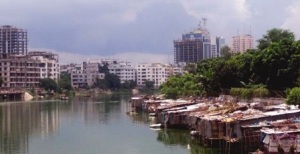By Diane Kellogg, Chair Sanitation Wikipedia Project
My father always said: “Your ticket off the chicken farm is your education.” My parents did their part. They enrolled us in the “Look it up Club” by buying the World Book Encyclopedia, one book at a time—A through Z. To any question we asked, our parents’ answer was the same: “You’re a member of the Look it up Club aren’t you? Look it up.”
Education mattered so much that “I have homework” could get you out of gathering eggs after school. As a result, all five of “the McKinney Kids” got good grades. Still, I wanted off that chicken farm badly. More degrees could get you even farther from the chicken farm, right?
I got so far from my practical roots that I actually ended up warning my students against looking it up. At least not on Wikipedia. The “pedia” of today couldn’t possibly be as good as the encyclopedia, right? Anyone and everyone can add “stuff” to Wikipedia, so how could it be any good?
Was I ever wrong.
You can’t get anything past the Wikipedia Warriors out there on the planet. Yes, anyone can add things, but there will be an army of eyes on your work. The article on cholera, for example. A total of 244 people have the cholera article on their “watchlist.” Many of those have probably asked Wikipedia to notify them by e-mail when “changes were made to an article you’re watching.” If you make an assertion without referencing credible sources or insert your own opinion, you will hear from someone. Wikipedia specializes in facts. Objective facts. Wikipedia’s standards keep going up. It’s the best kind of crowd-sourcing: the best version of the article is what sticks.
What bothers me is that some of the articles on sanitation are so unreadable: Out of 100 points possible on the Flesch Readability Score, the page on “diarrhea” gets a 38. And get this: 2700 people click on that article every day. Multiply that by 365 days in a year, and you’ve got to wonder. I wonder if those clickers are finding what they’re looking for. Mothers in Mali with a sick baby want to know how much time they have to get fluids into that little body. Shouldn’t that diarrhea article be more easy to read and understand?
I’ve done penance in various ways. I’ve assigned a few Wikpedia articles so students will know I am no longer snooty about the quality of what can be found there. I’ve edited a few Wikipedia articles where I thought the experts were making concepts more obscure and complex than they needed to be. (Thankfully, the Wikipedia Warriors said “Thank you: that makes the point more clear.”) I’ve even asked colleagues to assign their students to do original research on WASH topics to see if they could find more recent information to add to articles.
Now I’m chairing a SuSanA drive to improve WASH content on Wikipedia ahead of World Toilet Day on 19 November 2017.
It’s that readability thing that has me so motivated. Our goal is to raise the average readability of all WASH articles to 60-70. The average is now 37. (You can check the readability of your own writing at this link.) In the spirit of practice what you preach, I just did that for my blog: 65.
On World Toilet Day, we will award $500 Honorariums to especially dedicated Sanitation Wikipedia volunteers. Click on this page to join the team or email Wikipedia@SuSanA.org to offer a few hours of your time. We make it fun.




